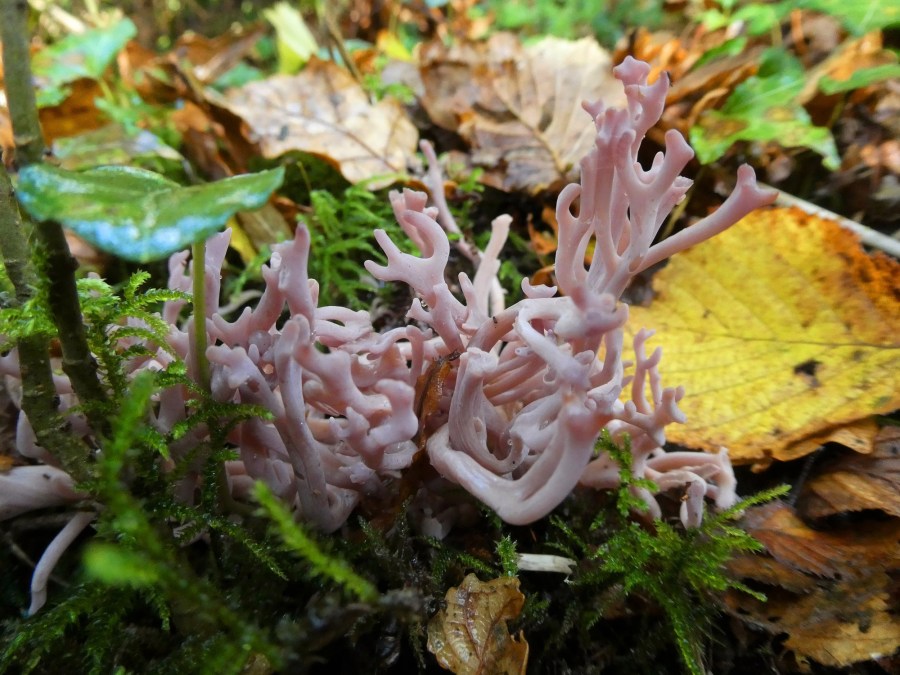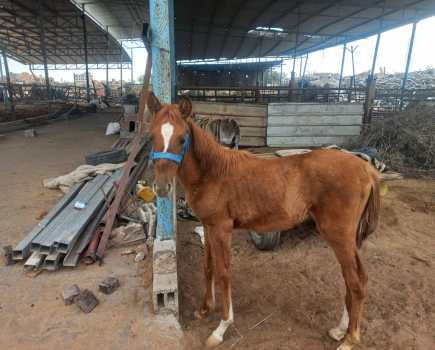One of the UK’s rarest fungi has been found in woodland belonging to The Donkey Sanctuary.
The violet coral, clavaria zollingeri, was discovered by one of the charity’s conservation officers, Helen Cavilla, at Paccombe Farm which is home to more than 350 donkeys.
The sighting is only the second time this fungus has been recorded in Devon, while other records are from just a handful of sites across the UK.
“I spotted something looking oddly like it was from an aquarium nestled amongst moss and leaf litter,” said Helen. “It was really exciting to realise what it was when I got closer.”
The violet coral’s global population is decreasing and it is listed as ‘Vulnerable’ on the IUCN (International Union for Conservation of Nature) Red List of Threatened Species and Global Fungi Red List.
Threats include habitat loss, pollution, agricultural intensification, over-exploitation and climate change.
The pinky-purple fungus, which is about the size of a cauliflower and has finger-like projections, tends to be found in old, unfertilised grasslands.
“The violet coral is one of our most beautiful fungi and can scarcely be confused with any other species,” Dr David Farley of the Devon Fungus Group explained.
“It is very rare in south-west England and usually confined to upland areas so its appearance at The Donkey Sanctuary is especially unusual. In 40 years of observing wild fungi I’ve only seen this species once before. A remarkable find.”
The specimen was found in a broadleaved woodland which is managed by The Donkey Sanctuary’s conservation team.
As well as the violet coral, conservation staff have found many waxcap fungi this year, and many of these are in donkey grazed fields.
Waxcaps belong to a group of mushrooms known for their waxy appearance and assortment of bright colours of reds, pinks, orange, yellows and white, like jewels amongst the grass.
“I was also pleased to find other interesting mushroom species popping up through donkey droppings, efficiently recycling the nutrients locked within and releasing them back into the soil on which they sit,” added Helen.
“The benefits of managing grassland for both donkeys and biodiversity is beautifully apparent throughout the seasons”.
Lead image by The Donkey Sanctuary









